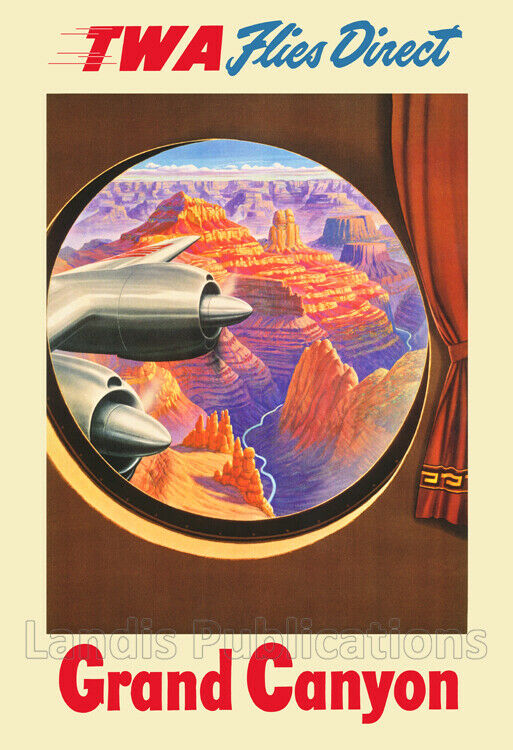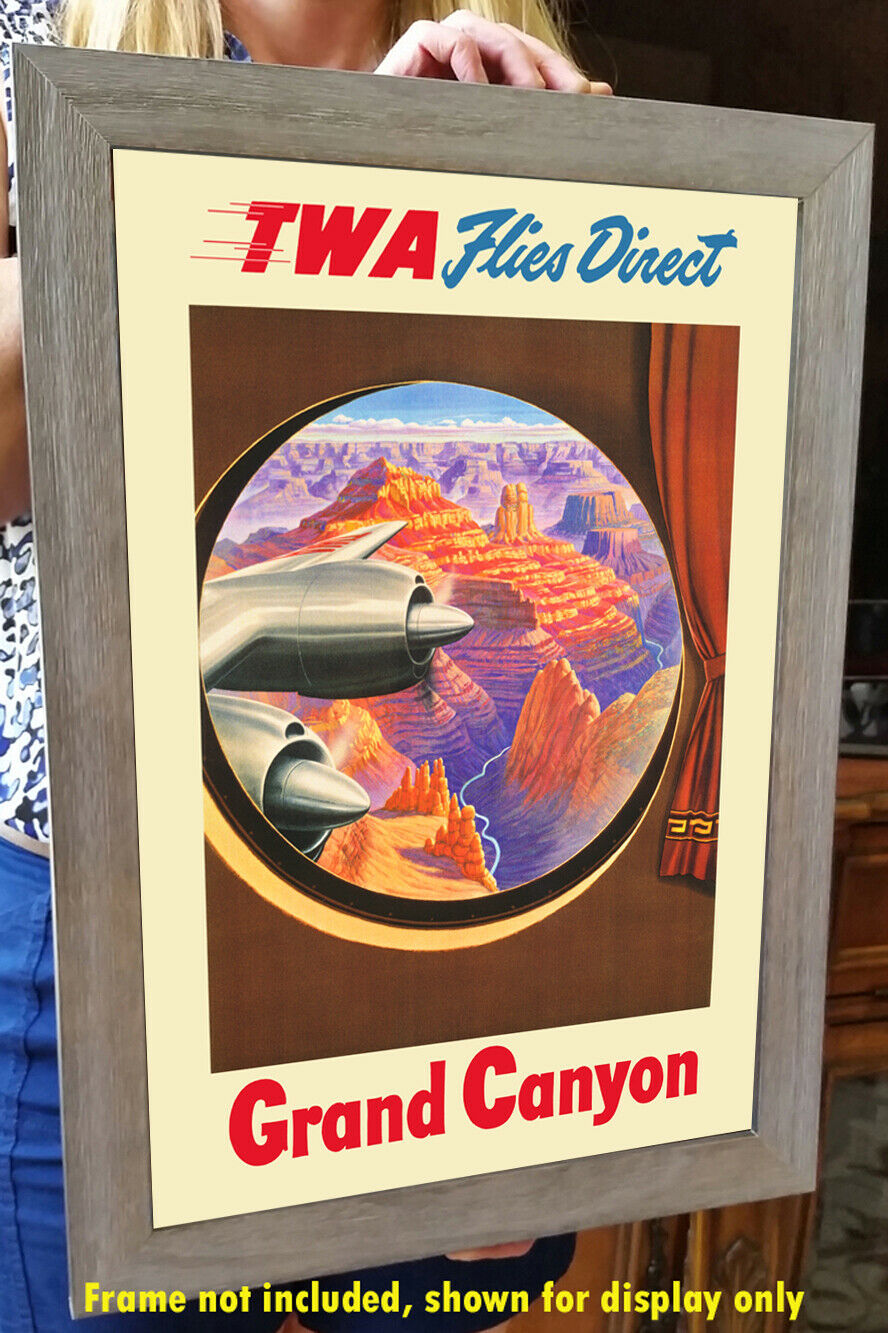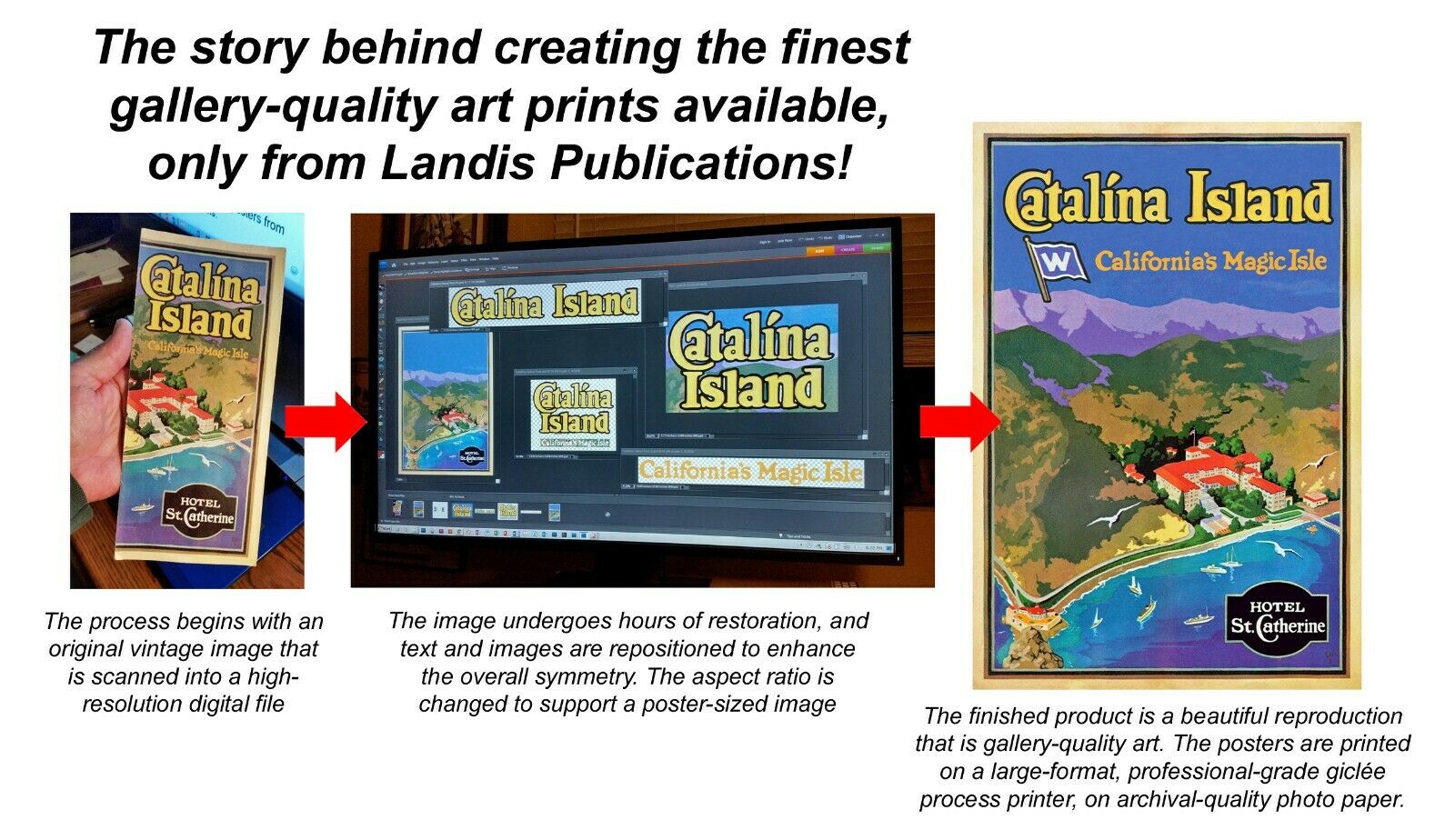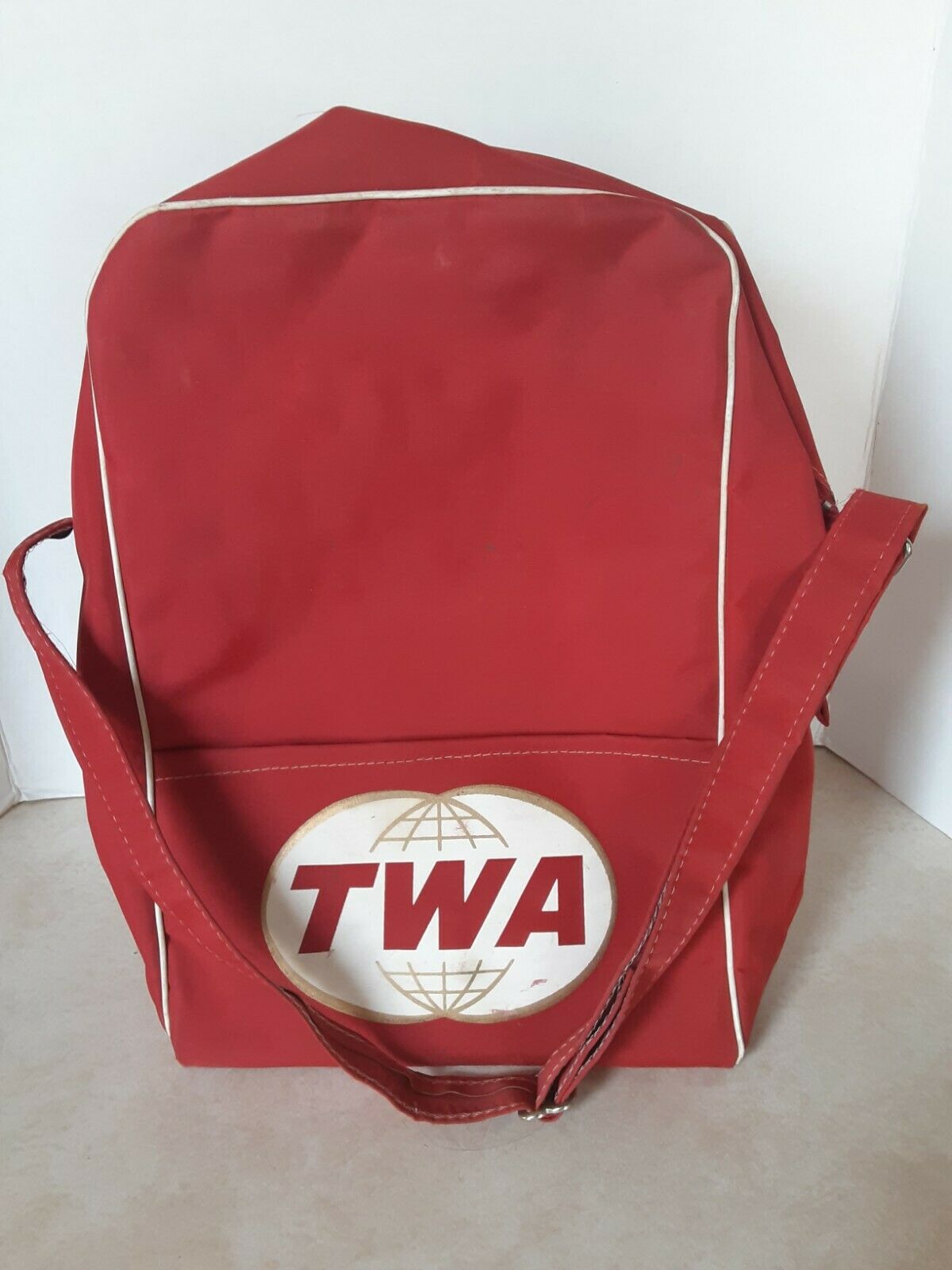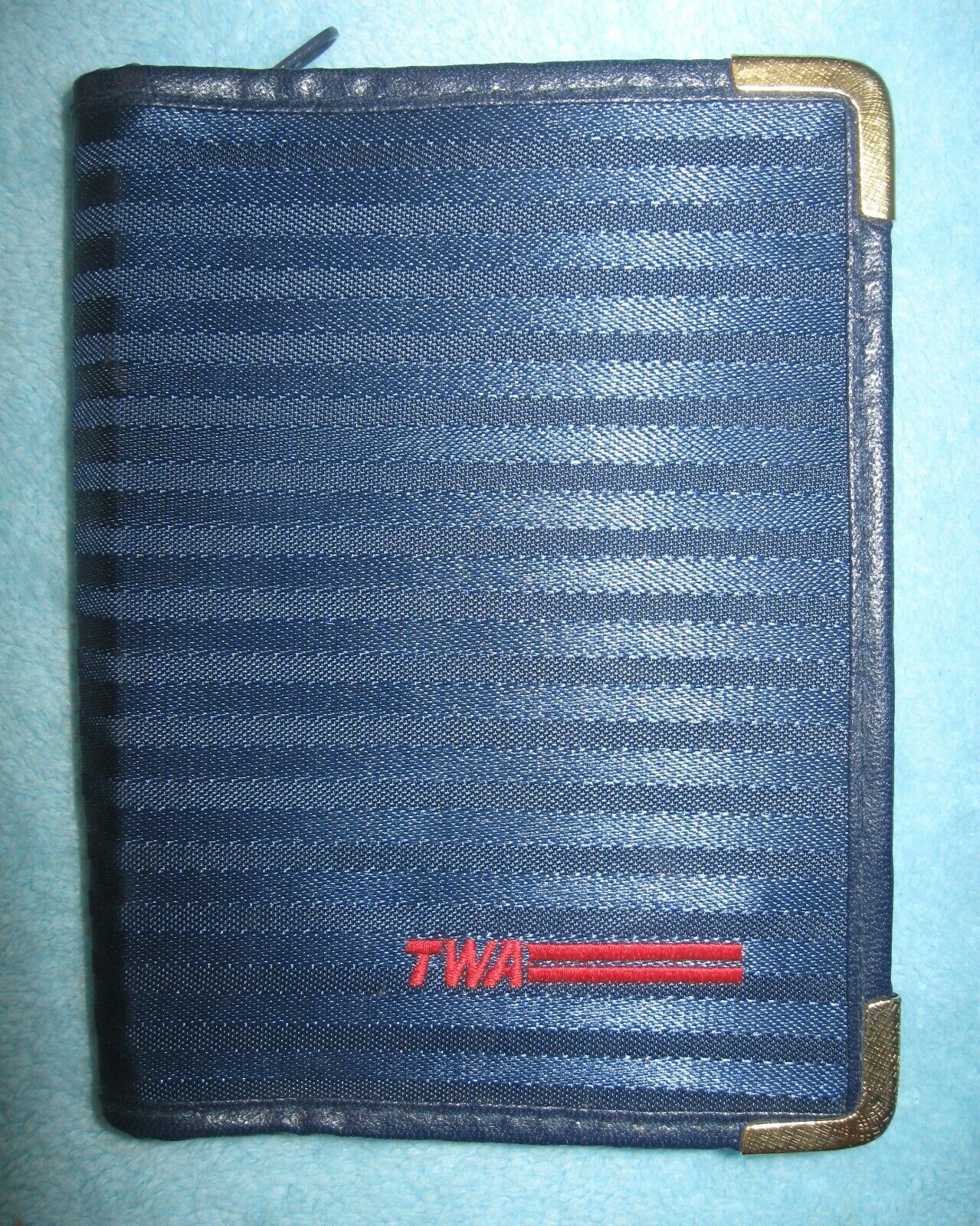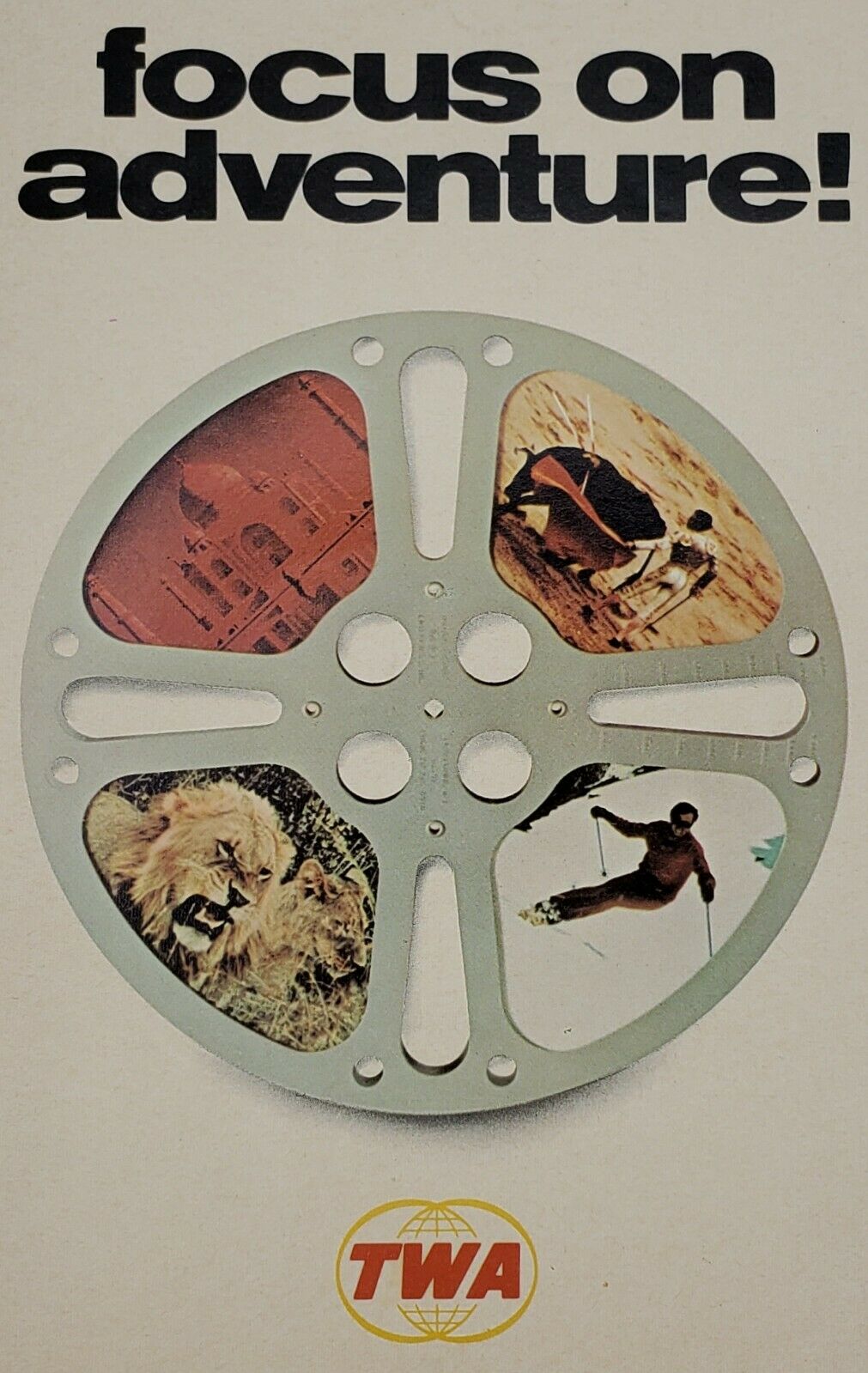-40%
TWA Service to Grand Canyon - 1950's Travel Poster
$ 10.53
- Description
- Size Guide
Description
These are simply the best posters available! You will be thrilled with the image quality, vivid colors, fine paper, and unique subjects.
OUR POSTERS ARE SIZED FOR STANDARD OFF-THE-SHELF FRAMES, WITH NO CUSTOM FRAMING REQUIRED, PROVIDING HUGE COST SAVINGS!
This beautiful reproduction poster has been re-mastered from a 1950’s Trans World Airlines (TWA) poster advertising their direct service to the Grand Canyon.
The vibrant colors and detail of this classic image have been painstakingly brought back to life to preserve a great piece of history.
The high-resolution image is printed on heavy archival photo paper, on a large-format, professional giclée process printer. The poster is shipped in a rigid cardboard tube, and is ready for framing.
The 13"x19" format is an excellent image size that looks great as a stand-alone piece of art, or as a grouped visual statement. These posters require
no cutting, trimming, or custom framing
, and a wide variety of 13"x19" frames are readily available at your local craft or hobby retailer, and online.
A great vintage print for your home, shop, or business!
HISTORY – TWA: TRANS WORLD AIRLINES
Trans World Airlines (TWA) was a major American airline that existed from 1930 until 2001. It was formed as Transcontinental & Western Air to operate a route from New York City to Los Angeles via St. Louis, Kansas City, and other stops, with Ford Trimotors. With American, United, and Eastern, it was one of the "Big Four" domestic airlines in the United States formed by the Spoils Conference of 1930.
Howard Hughes acquired control of TWA in 1939, and after World War II led the expansion of the airline to serve Europe, the Middle East, and Asia, making TWA a second unofficial flag carrier of the United States after Pan Am. Hughes gave up control in the 1960s, and the new management of TWA acquired Hilton International and Century 21 in an attempt to diversify the company's business.
As the Airline Deregulation Act of 1978 led to a wave of airline failures, start-ups, and takeovers in the United States, TWA was spun off from its holding company in 1984. Carl Icahn acquired control of TWA and took the company private in a leveraged buyout in 1988. TWA became saddled with debt, sold its London routes, underwent Chapter 11 restructuring in 1992 and 1995, and was further stressed by the explosion of TWA Flight 800 in 1996.
In 2001, TWA filed for a third and final bankruptcy and was acquired by American Airlines. American laid off many former TWA employees in the wake of the September 11, 2001 attacks and closed its St. Louis hub in 2003.
TWA was headquartered at one time in Kansas City, Missouri, and planned to make Kansas City International Airport its main domestic and international hub, but abandoned this plan in the 1970s. The airline later developed its largest hub at Lambert-St. Louis International Airport. Its main transatlantic hub was the TWA Flight Center at John F. Kennedy International Airport in New York City, an architectural icon designed by Eero Saarinen, and completed in 1962.
